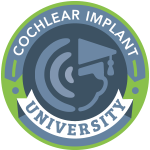FERPA
The Family Educational Rights and Privacy Act (FERPA) is a federal law that protects the privacy of student education records. The law applies to both public and private schools that receive federal funds from the U.S. Department of Education. When the student is under 18 years of age, FERPA provides parents specific rights regarding their children’s education records, including rights to:
- Inspect and review their child’s school records.
- Request that the school corrects education records that parents believe to be inaccurate or misleading.
- Request a formal hearing if the school refuses to amend education records per their request.
- Include a statement with the education records in which parents describe their view about the contested information.
These rights transfer from parents to students when students reach age 18 or attend college.
Under the the Family Educational Rights and Privacy Act (FERPA), college students may provide written permission to the school to allow their parents to access their education records.
While providing this permission allows parents to take action on the student’s behalf, it is best for students to self-advocate. Through their everyday experiences, students are in a better position than their parents to identify the accommodations that meet their needs and ensure the college implements the accommodations.
Further, FERPA does not require colleges to work with the student’s parents, even with the student’s permission, which may lead to delays in securing and implementing educational accommodations for students with disabilities.

